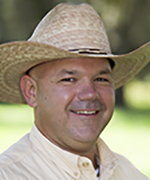Weed Science Program
Research and Extension Programs
Animal agriculture is a major contributor to Florida’s economy, and most ranchers rely upon forage grasses for a large percentage of total feed requirements. Florida’s unique environment allows weeds to grow and produce seeds nearly year-round, resulting in a rapid increase in weed density if not properly managed. Allowing weeds to infest pastures can dramatically reduce stocking rates, profitability, and possibly health (plant poisoning) of animal production systems. Estimates have suggested that weeds cost ranchers in excess of $180 million annually. Therefore, implementation of weed management strategies must be considered to maintain the economic performance of a ranch.
The primary goal of the weed science program is to determine the best management practices for weed management within different forage systems. Research in the program investigates the effects of herbicide applications on target weed species as well as forage tolerance, and typically drives extension recommendations for clientele. Traditional broadcast and alternative herbicide applications are explored in the program. Non-chemical methods for weed management, including biocontrol, are explored with or without herbicide applications.
Educational extension programs are synthesized based upon the knowledge base of a particular target audience. A large percentage of research and demonstration plots are conducted on-farm through the assistance of county extension faculty, and provides clientele direct access for an up-close look at the newest technologies, techniques, and recommendations. Other methods of program delivery include training events, field consultations, fact sheets, popular press articles, and video delivery.

Dr. Brent Sellers
(863) 735-1314 ext. 202
sellersb@ufl.edu

